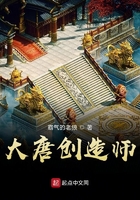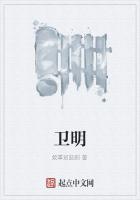"The usurer doubtless knew what I was saying from the movement of my lips. He gave me a cool glance. The Count's face grew livid. The Countess was visibly wavering. Maxime stepped up to her, and, low as he spoke, I could catch the words:
" 'Adieu, dear Anastasie, may you be happy! As for me, by to-morrow my troubles will be over.'
" 'Sir!' cried the lady, turning to Gobseck. 'I accept your offer.'
" 'Come, now,' returned Gobseck. 'You have been a long time in coming to it, my fair lady.'
"He wrote out a cheque for fifty thousand francs on the Bank of France, and handed it to the Countess.
" 'Now,' continued he with a smile, such a smile as you will see in portraits of M. Voltaire, 'now I will give you the rest of the amount in bills, thirty thousand francs' worth of paper as good as bullion.
This gentleman here has just said, "My bills will be met when they are due," ' added he, producing certain drafts bearing the Count's signature, all protested the day before at the request of some of the confraternity, who had probably made them over to him (Gobseck) at a considerably reduced figure.
"The young man growled out something, in which the words 'Old scoundrel!' were audible. Daddy Gobseck did not move an eyebrow. He drew a pair of pistols out of a pigeon-hole, remarking coolly:
" 'As the insulted man, I fire first.'
" 'Maxime, you owe this gentleman an explanation,' cried the trembling Countess in a low voice.
" 'I had no intention of giving offence,' stammered Maxime.
" 'I am quite sure of that,' Gobseck answered calmly; 'you had no intention of meeting your bills, that was all.'
"The Countess rose, bowed, and vanished, with a great dread gnawing her, I doubt not. M. de Trailles was bound to follow, but before he went he managed to say:
" 'If either of you gentlemen should forget himself, I will have his blood, or he will have mine.'
" 'Amen!' called Daddy Gobseck as he put his pistols back in their place; 'but a man must have blood in his veins though before he can risk it, my son, and you have nothing but mud in yours.'
"When the door was closed, and the two vehicles had gone, Gobseck rose to his feet and began to prance about.
" 'I have the diamonds! I have the diamonds!' he cried again and again, 'the beautiful diamonds! such diamonds! and tolerably cheaply.
Aha! aha! Werbrust and Gigonnet, you thought you had old Papa Gobseck!
Ego sum papa! I am master of the lot of you! Paid! paid, principal and interest! How silly they will look to-night when I shall come out with this story between two games of dominoes!'
"The dark glee, the savage ferocity aroused by the possession of a few water-white pebbles, set me shuddering. I was dumb with amazement.
" 'Aha! There you are, my boy!' said he. 'We will dine together. We will have some fun at your place, for I haven't a home of my own, and these restaurants, with their broths, and sauces, and wines, would poison the Devil himself.'
"Something in my face suddenly brought back the usual cold, impassive expression to his.
1
" 'Thanks,' said I, 'I do not breakfast till noon.'
"I had scarcely spoken before hurried footsteps sounded from the passage. The stranger stopped at Gobseck's door and rapped; there was that in the knock which suggested a man transported with rage. Gobseck reconnoitred him through the grating; then he opened the door, and in came a man of thirty-five or so, judged harmless apparently in spite of his anger. The newcomer, who was quite plainly dressed, bore a strong resemblance to the late Duc de Richelieu. You must often have met him, he was the Countess' husband, a man with the aristocratic figure (permit the expression to pass) peculiar to statesmen of your faubourg.
" 'Sir,' said this person, addressing himself to Gobseck, who had quite recovered his tranquillity, 'did my wife go out of this house just now?'
" 'That is possible.'
" 'Well, sir? do you not take my meaning?'
" 'I have not the honor of the acquaintance of my lady your wife,'
returned Gobseck. 'I have had a good many visitors this morning, women and men, and mannish young ladies, and young gentlemen who look like young ladies. I should find it very hard to say----'
" 'A truce to jesting, sir! I mean the woman who has this moment gone out from you.'
" 'How can I know whether she is your wife or not? I never had the pleasure of seeing you before.'
" 'You are mistaken, M. Gobseck,' said the Count, with profound irony in his voice. 'We have met before, one morning in my wife's bedroom.
You had come to demand payment for a bill--no bill of hers.'
" 'It was no business of mine to inquire what value she had received for it,' said Gobseck, with a malignant look at the Count. 'I had come by the bill in the way of business. At the same time, monsieur,'
continued Gobseck, quietly pouring coffee into his bowl of milk, without a trace of excitement or hurry in his voice, 'you will permit me to observe that your right to enter my house and expostulate with me is far from proven to my mind. I came of age in the sixty-first year of the preceding century.'
" 'Sir,' said the Count, 'you have just bought family diamonds, which do not belong to my wife, for a mere trifle.'
" 'Without feeling it incumbent upon me to tell you my private affairs, I will tell you this much M. le Comte--if Mme. la Comtesse has taken your diamonds, you should have sent a circular around to all the jewelers, giving them notice not to buy them; she might have sold them separately.'
" 'You know my wife, sir!' roared the Count.
" 'True.'
" 'She is in her husband's power.'
" 'That is possible.'
" 'She had no right to dispose of those diamonds----'
" 'Precisely.'
" 'Very well, sir?'
" 'Very well, sir. I knew your wife, and she is in her husband's power; I am quite willing, she is in the power of a good many people;but--I--do--NOT--know--your diamonds. If Mme. la Comtesse can put her name to a bill, she can go into business, of course, and buy and sell diamonds on her own account. The thing is plain on the face of it!'
" 'Good-day, sir!' cried the Count, now white with rage. 'There are courts of justice.'
" 'Quite so.'














